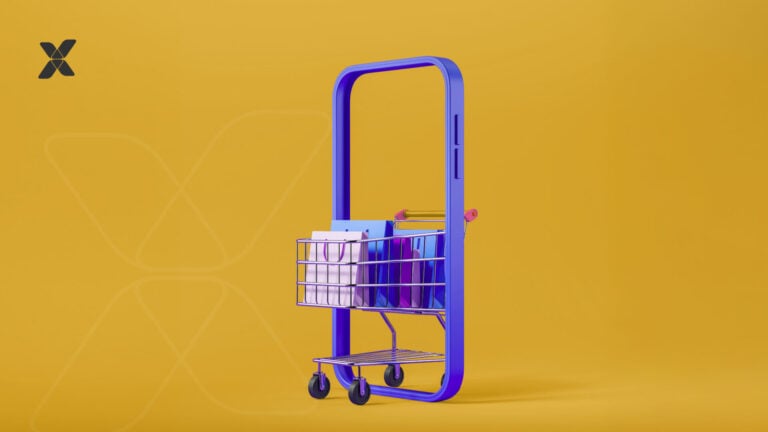For many businesses, Black Friday is the busiest day of the year. Before you go all-out on your Black Friday initiatives, it’s good to take a step back and consider if your ecommerce business is truly ready. While excitement and deals are at the top of the mind, successful retailers know that preparation is the key to turning Black Friday into a smooth-running, profitable event. We’ve compiled a comprehensive checklist to help you, covering topics from landing pages to stretching your sales beyond Black Friday.
CONTENT
- 1. Preparing your website for Black Friday
- 2. Reaching all your target audiences
- 3. Proactively tackling customer questions
- 4. Analyzing last year’s data
- 5. Ramping up your cybersecurity
- 6. Ensuring adequate inventory
- 7. Having a backup plan
- 8. Stretching your sales beyond Black Friday
- Need a hand with your ecommerce strategy?
✓ 1. Preparing your website for Black Friday
“Your website is your best sales rep,” says the old adage. Nowadays, this is more true than ever. People want to find all the info they need as quickly as possible. Customers visiting your site on Black Friday will be there for one reason, and one reason only: a good deal. So make it as simple as possible for them to find out everything they need to know.
Let’s start with an absolute no-brainer: a dedicated Black Friday landing page, which has all the SEO essentials:
- The right URL structure
- Heading hierarchy
- Content richness
- Call-to-action optimization
- Outbound links
You could also opt for a daily deals page, which acts as a hub to drive return visits and spur impulse buys.
If you don’t have time to craft one or more new landing pages, you could include promotions and information on your homepage. Featuring a prominent Black Friday banner or slider, including Black Friday product carousels, and incorporating clear and compelling CTAs are a few straightforward ways to draw attention to your campaigns. These banners and carousels can also be used on other strategic pages, such as category pages.
Another thing to check is your website’s speed and performance. Shoppers have no patience for slow-loading pages or websites that crash under heavy traffic. You will almost certainly see an increase in your website visitors on Black Friday, so make sure your website is prepared to handle the demand. Fast load times, seamless navigation, and rock-solid stability are crucial.
✓ 2. Reaching all your target audiences
Defining your target audiences is only the first step. Now that you know who your (prospective) customers are, how will you reach them?
You should adjust your marketing strategy to the demographic you want to reach. For instance, we see very different behavior in different generational cohorts:
- Gen Z: as true digital natives, social commerce is a great way to reach them, preferably with interactive content that visually stands out
- Millennials: podcasts are popular among millennials and may provide a great platform to market your products
- Gen X: email marketing with clear call-to-actions is a great way to reach Gen X
- Baby boomers: traditional marketing platforms, such as TV, still work well with baby boomers, especially if the ads are focused on brand loyalty and customer service
The same analyses could be made for other demographic groups: where they live, their habits, who they live with, etc.
✓ 3. Proactively tackling customer questions
The last thing you want to do when Black Friday is in full swing is spend time on easy-to-answer questions from customers. That’s why thorough FAQs are more important than ever during this time. Use data and insights to find out the most common questions during this time of year. Don’t be afraid to refer to your FAQs on your landing and category pages. Instead, make them visible and easy to find, so that your customer support team has the bandwidth to deal with more complex customer queries. You could even add a dedicated Black Friday FAQ section.
Many of your visitors’ questions will revolve around your returns policy and delivery times. During peak season, your returns policy might differ from usual, and customers may have to wait a few extra days for their orders. Clearly communicate this information so that your customers set the right expectations.
✓ 4. Analyzing last year’s data
Only data can paint the full picture of your Black Friday efforts. Invest time and effort into analyzing what happened at the same time last year. Assuming your website attracts many more visitors on Black Friday compared to a regular day, you will have more data at your disposal. This is your biggest (and most accurate) weapon in preparing for what’s to come.
With the use of analytics tools, you can make intelligent and informed decisions based on what you did last year(s) and what happened.
✓ 5. Ramping up your cybersecurity
Black Friday is a busy day, not only for retailers but also for cybercriminals. With the increase in online transactions, ecommerce companies face elevated security risks, as cyberattacks such as DDoS attacks and ransomware could disrupt business and compromise customer data. Data breaches, which can result in financial loss, identity theft, and damage to customer trust, may have long-term effects on a company’s reputation. Prioritizing cybersecurity is important any day of the year, but the consequences of not doing so might be especially harsh when you are making record sales.
✓ 6. Ensuring adequate inventory
You might be ready for the Black Friday rush, but is your inventory ready, too?
Retailers carefully evaluate which products to keep in stock, at what volume, and which products to order ahead of time. Limited storage space, the cost of storing and keeping products up to date, and residual supply chain issues mean a delicate balance.
AI is a great way to predict the demand before the holiday season begins. It can forecast consumer demand shifts and even automate inventory management processes, packing, and updating your tech. Here are a few ways to use AI to your benefit this holiday season:
- inventory replenishment
- predictive rules for stock management
- estimated delivery time
✓ 7. Having a backup plan
We don’t want to put a damper on things, but having a backup plan is a sensible idea for such a big event. Consider worst-case scenarios for your business—whether it’s delivery issues, empty stock rooms, payment problems, etc—and create a contingency plan to counter such issues. It’s better to be working through your options early on to avoid unnecessary stress on the most important day.
One item you’ll definitely want in your back pocket is a maintenance page if your site goes down. Remember to keep this clear, understandable, informative, and friendly. Also, ensure it keeps in line with the rest of your website’s design to avoid confusing new visitors.
✓ 8. Stretching your sales beyond Black Friday
Black Friday is no longer a one-day event: with Cyber Monday and even Black Friday week promotions, your sales can stretch way beyond a single Friday.
Spreading out specific offers draws customers to your webshop over several days, making them more likely to make impulse purchases. It also keeps traffic volumes more manageable for your website. It also keeps order volumes more manageable for your staff. Amp up the feeling of scarcity even more by holding hourly specials to keep customers on your site longer, or coming back for more.
Need a hand with your ecommerce strategy?
Vaimo’s experienced team can help you set up the right ecommerce strategy. We’ve helped hundreds of brands and retailers all over the world to increase their sales. Together, we make sure your ecommerce website is tactically ready for your ambitious plans.
Let’s talk.







